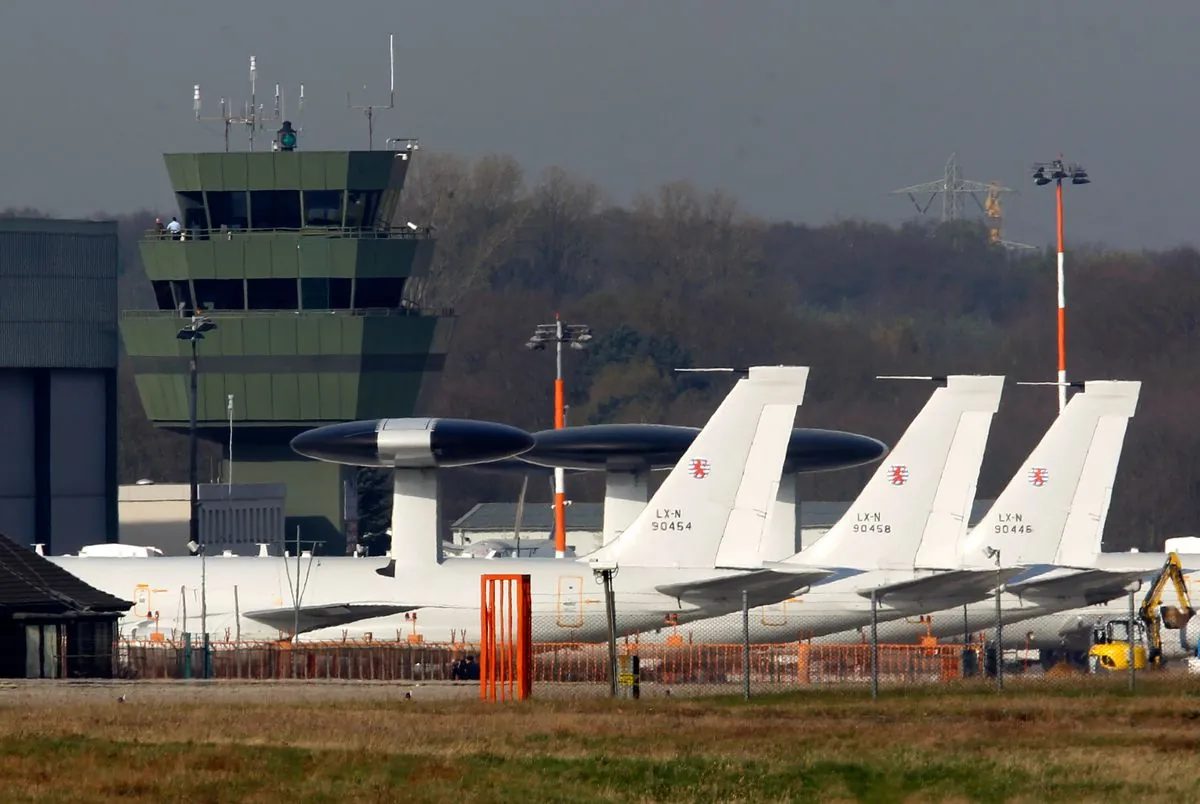On August 23, 2024, the NATO air base in Geilenkirchen, Germany, maintained its elevated security status in response to intelligence suggesting a potential threat. The facility, which hosts the alliance's fleet of E-3A Airborne Warning and Control System (AWACS) aircraft, continues to operate at security level "Charlie," the second-highest of four alert states.
A spokesperson for the base confirmed, "We are still at Charlie," explaining that this level indicates "an incident has occurred or intelligence has been received suggesting that some form of terrorist action against NATO organizations or personnel is highly likely." As a precautionary measure, the base is functioning with minimal staffing while continuing planned operations.
The Geilenkirchen base, located in North Rhine-Westphalia, is a crucial component of NATO's air defense capabilities. The E-3A AWACS aircraft stationed there can detect air and surface contacts up to 400 km away, providing vital surveillance and command and control capabilities for the alliance.
This heightened alert status is not connected to a recent incident at a military base in nearby Cologne, where authorities investigated suspected sabotage of the water supply approximately one week ago. The Geilenkirchen base also reported an attempted trespassing incident around the same time, prompting a thorough inspection of the premises. German military officials later confirmed that tests showed no contamination of the tap water at the Cologne base.
These events occur against a backdrop of increasing tensions between NATO and Russia. The alliance has previously warned of a campaign of hostile activities allegedly orchestrated by Russia, including acts of sabotage and cyberattacks. In June 2024, NATO Secretary-General Jens Stoltenberg highlighted a pattern of such incidents, attributing them to heightened Russian intelligence activity.
"We see a pattern evolving and recent attacks are a result of Russian intelligence becoming more active."
Analysts have treated several incidents on NATO territory as suspicious in recent years. One notable example is the severance of a vital undersea cable connecting Svalbard, a Norwegian archipelago in the Arctic Ocean, to mainland Norway in 2022.
The current situation underscores the complex security challenges facing NATO, which was established in 1949 and now comprises 31 member countries. The alliance has adapted its strategies to address emerging threats, including recognizing cyberattacks as potential triggers for its Article 5 collective defense clause.
As tensions persist, NATO continues to maintain its readiness through regular military exercises and the NATO Response Force (NRF), established in 2002 to quickly address emerging crises. The alliance's highest alert level, "Delta," remains in reserve for the most severe security situations.
While the Geilenkirchen base remains vigilant, the broader implications of these events highlight the ongoing geopolitical tensions and the critical role of NATO's surveillance and defense capabilities in ensuring the security of its member states.
